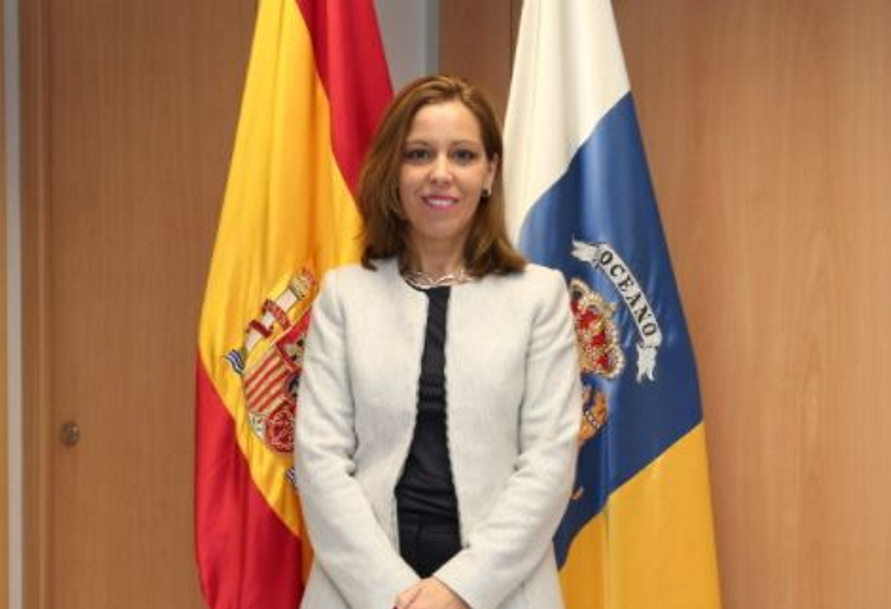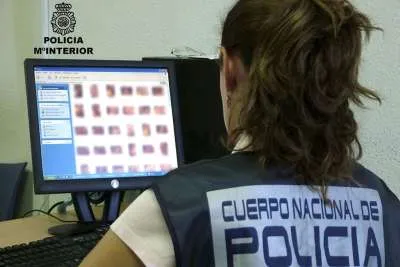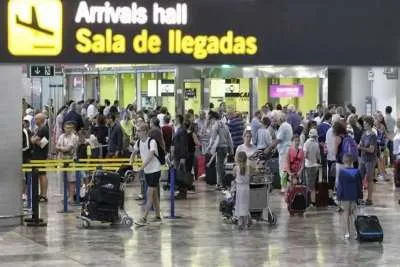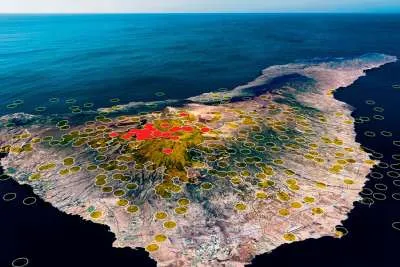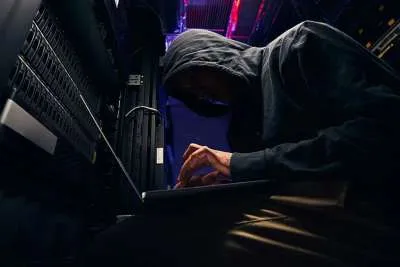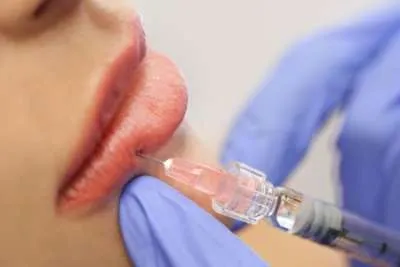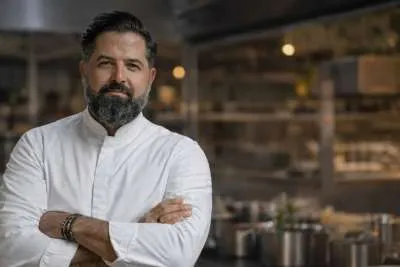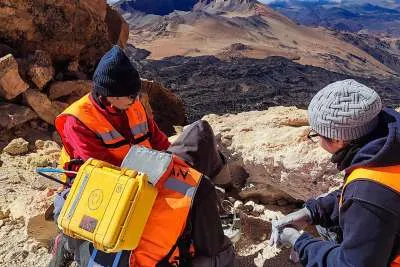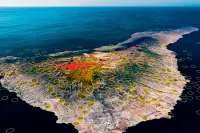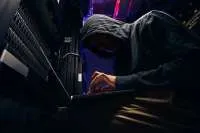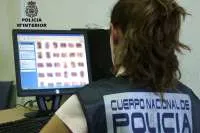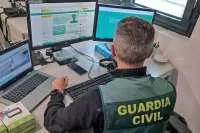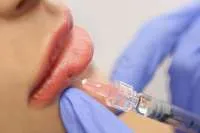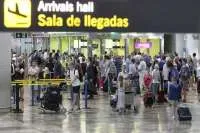Begoña Reyero: ‘Not being vaccinated exposes you to contract the virus more seriously’
- 22-08-2021
- Health
- Canarian Weekly
Last week the Canary Islands reached the landmark of having 70% of its target population fully vaccinated. The SCS nursing teams have administered almost 2.9 million vaccines, reaching more than 1.6 million people with at least one dose, which represents 81.6% of the target population, while more than 1.4 million people (71.7%) have had both. It seemed an unattainable goal when the campaign started on December 27th, but with perseverance and enthusiasm everything was possible.
Seven women were the first to receive the vaccine in the Islands, and only eight months have passed, but we must continue to vaccinate as many people as possible to try to stop the coronavirus whose effects have been devastating not only to our health, but also to our economy, and killed 900 of our most vulnerable population.
The admirable work of the nurses and everyone who makes up the vaccination teams deserves recognition, as does the coordinator of the vaccination campaign in the Canary Islands, Begoña Reyero, who in an interview with Diario De Avisos, highlights the union created to form a great team in the goal of vaccination:
Q: We have reached a goal that seemed impossible a year ago. In eight months 70% of the population fully vaccinated.
A: “Yes, there are almost 1.4 million people in the Canary Islands, 72% of the target population fully vaccinated, but above all, I want to highlight that we have reached 82% of the target population with one dose. They are important objectives, but we did not doubt it was possible, despite some voices saying that it wouldn’t be achieved until 2022. However, this is only the first objective of the strategy and we must not lower our guard. We have to continue expanding coverage, continue vaccinating as many people as we can”.
Q: At the beginning we suffered a lot with the delivery of vaccines, what is the situation now?
“We are doing very well. We have stocks of all vaccines, which for a few weeks have not been a problem. At the beginning we had few doses and a lot of people to vaccinate, then we passed a period in which we had more doses and we set up mass vaccination centres, and a few weeks ago we started vaccination without an appointment. This has been running for several weeks now with very well-trained teams, and with logistics that have been consolidated, ensuring second doses and enough stock to continue advancing in coverage”.
Q: How many people are involved in the entire vaccination team in the Canary Islands?
“There have really been so many resources that it would be very difficult to give an accurate number because almost the entire Canarian Health Service has been involved in one task or another at some point. It’s not the nurses actually administering the doses, it is the Health Centres calling people for appointments, the administrators, guards, also Binter and the shipping companies that have been involved in the transport of vaccines, and other companies that have lent a hand to handle complex logistics when it comes to moving the vaccines. We started with 25 nurses in Tenerife and Gran Canaria, but we have been increasing resources all the time.”
Q: What a change from the complexity of those first weeks with scarce stocks, their transfer and conservation, to the present.
“Yes because all this was completely new, although for the nurses, vaccination is something intrinsic and it is not something different from other campaigns. At the beginning it was a somewhat more complex vaccine (Pfizer) that required deep freezing, which we were not used to, since the usual vaccines come with another kind of preservation system. We had to learn processes, both in time and in their management, the use of cold ice, optimizing transfers, confirming vaccination schedules, and since the Islands move at different rates, having to send vaccines between islands from day to day and transport them in suitable conditions.
Q: At the start of the campaign, was the most complex thing going to all the nursing homes and homes of the dependents?
“At first all the steps were complex. It was necessary to locate all those nursing homes, make the lists and go to each one to vaccinate. In addition, new centres were discovered. Going to each point and the transfer of the doses was more complicated, because now the vaccines have improved in terms of conservation and transportation. The vaccination of dependent people who are at home was a more complex stage, indeed it was not only to go once, but to replicate that vaccination after 21 days, visiting house to house, having only a six hour window to implement the vaccine. We must applaud the staff of the Primary Care centres that solved a complicated task, since it is not the same that people come to get vaccinated in a place where you have to go door to door".
Q: Will a third booster dose be necessary here, as they have already begun in other countries?
“Yes, it should be done. Without a doubt, now it will be easier than the first to implement, because we have learnt along the way. If the need to put this third dose should come, that effort will have to be replicated and go to homes, centres and residences, because it will probably be destined to risk and vulnerable patients first. We are prepared to make that effort again to beat the virus”.
Q: Which is the age group that worries you the most? Maybe 60-69, 40-50, or twenty somethings?
“They all worry me but for different reasons. I think young people get it now since we started with them four weeks ago. We have a range of people between 30 and 45 years that are somewhat more difficult, people who are perhaps not so used to preventive measures, who only visit health centres when it is an emergency, people who have not had vaccine for many years. With these people over 30, we have to re-educate them, find out the reasons why they have not come to be vaccinated, try to teach them the advantages of the vaccine and what is called opportunistic vaccination. It will be necessary to insist on its benefits, but since they are young and don‘t have associated pathologies, they think they are invulnerable and that COVID won’t affect them. They do not value or understand the risk that they are exposing themselves to, therefore, we must continue working hard to remove that false belief that they are immortal and that it will not happen to them”.
Q: Perhaps in September the vaccination rate will improve again after returning from their holidays?
“Vaccination has been delayed by summer holidays. They have told us that they want to be vaccinated but they do not want their holiday to be altered or cancelled, but also that they are not afraid of the disease and they tell us that they don’t want to go through the remote and mild side effects, so they are postponing it in case they get a fever or arm ache, when sadly they do not realize that not being vaccinated means that they are more exposed to seriously contracting the virus. These are excuses that show little awareness of the danger they are putting themselves in”.
Q: Are those hospitalized on wards or admitted to ICU, unvaccinated or have they had their first jab?
“Indeed, it seems that they don’t want to see the news that comes out and that if a 27-year-old boy dies they don’t care. We have many more young people hospitalized and in ICU, and currently between 80 and 90% are not vaccinated. I wish we could convey the views of many in hospital who wish they had been vaccinated. We need people who have overcome a serious COVID to help us promote vaccination among others”.
Q: In addition to the mass vaccination points, they have started with the ‘Vacuna Buses’, how did this come about?
“In Fuerteventura, a van was used that went to different points with an attached tent for vaccinations. However, in the ‘Vacuna Buses’ they can be vaccinated inside it, people have an entrance and an exit, and outside we will put a tent as a waiting area. We started at the Heliodoro Rodríguez stadium, taking advantage of the CD Tenerife game, and in Las Palmas in the square attached to the Alfredo Kraus Auditorium, at the end of the Las Canteras promenade. With the buses, we want to get closer to people. We will start in more visible places, then we plan to go to the beaches, universities, parks or squares, looking for those people who because of laziness, do not want to be vaccinated, making it easy for them to be encouraged to get their jab”.
Q: Will we have to consider shortly if we want to vaccinate those under 12 years of age?
“At the moment there is an important issue, clinical trials are underway, but there is still no licensed vaccine for children under 12 years of age. The studies are advanced but at the moment there is no authorization even if we want to vaccinate them. The question is on the table and is being evaluated, but there is still no tool, so these children are ‘unprotected’ for the moment. However, we have seen that if they are becoming infected they are not experiencing an illness that is too alarming or serious, and that gives us more peace of mind.”
Q: Vaccination is essential, but is it also essential to maintain the rest of the protection measures?
“Without a doubt, we must be vigilant, because we can easily find ourselves back at square one, in a situation that will baffle us again. The virus has been changing and society must change to, and must be made aware that we have to continue to control it with all the tools in our hands. It is important to continue with the use of masks, hand washing, social distancing and ventilate rooms, since it is not only the vaccines that will save us, but, the combination of all prevention measures”.
Other articles that may interest you...
Trending
Most Read Articles
Featured Videos
TributoFest: Michael Buble promo 14.02.2026
- 30-01-2026
TEAs 2025 Highlights
- 17-11-2025


